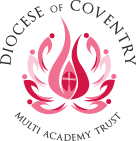Music
At DBJA, we firmly believe that every child has the right to study music as a “proper” subject. We are proud of the fact that our children receive weekly one-hour music lessons with a specialist teacher, where our children engage in a rich and varied musical diet. The 2021 non-statutory guidance for teaching music at Key Stage 2 lies at the heart of lesson planning. Each project focuses on a main practical outcome (e.g. creating a performance, composition and/or improvisation) whilst developing active listening and analysis skills, widening subject-specific vocabulary and expanding historical awareness. Written work is routinely marked and assessed, and pupils keep their work in individual folders. Practical work is filmed and marked, with individual pupil levels logged on class tracking sheets. At the end of each unit, pupils are awarded a mark of “Working Towards”, “Met” or “Greater Depth”, which helps to inform end of year attainment levels and a cumulative end of KS2 level in Year 6.
Throughout Year 3, the building blocks of becoming a musician are established. Pupils work through projects on rhythm, orchestral instruments, world music styles and how to create mood through the use of specific elements of music. Year 4 seeks to further develop a music skill set and classes spend half the year learning to play a brass instrument (delivered by Warwickshire Music). Year 4 musicians also create original compositions inspired by paintings and further develop and refine their performing and active listening skills, in addition to widening their theoretical and historical music knowledge. Year 5 focuses on broadening pupils’ understanding of other musical cultures and the cross-fertilisation of musical styles (e.g. through studying Indian music, blues and reggae music). Here, context is at the forefront of each scheme of work. By Year 6, we hope that our pupils have developed into confident and able musicians. They flex their musical muscles and reflect on their KS2 music knowledge and skills so that by the time they leave at the end of Year 6, our children should be musically curious and well informed. In order to achieve this, we don’t take anything for granted, and alongside developing reflective learners, we understand the importance of reflective teaching, too. Every child is musical in some way, and it is our responsibility to develop their musicality.
As a faith school, hymn practice is a regular feature of weekly classroom lessons and whole school Collective Worship, and we are very much a singing school. Music plays an important part of our Christmas and Easter church services, with carefully chosen solos, ensemble performances and congregational singing. In addition, we have fantastic Music Ambassadors who attend weekly lunchtime rehearsals and engage in numerous performances, both in and out of school. Uptake for instrumental lessons is robust, with lessons offered on voice, recorder, flute, clarinet, saxophone, violin, cornet, trumpet, piano, keyboard, guitar (electric and acoustic) and drum-kit. Every child has the opportunity to perform in front of an audience during their time at DBJA, be it through Nativity plays, carol concerts, instrumental showcases, church services, in assembly or for the Year 6 leavers’ presentation. We truly wish to encourage all pupils at DBJA to get involved in making music, whatever that looks like, so that they know and understand the joy it can bring because music is for life.
Ofsted May 2025
Music lessons are “inclusive with clear progression........and build on previous knowledge”.
“All pupils take part” and that there is “clear lesson structure and expectations” delivered with “clarity and ownership by the teacher”.
Each year group covers a range of topics, listed below: Please click on the topic to see the Knowledge Organiser. This will give you information about the knowledge and skills that the children will be learning. It will also give you information on the vocabulary taught and how this unit links with prior learning.






